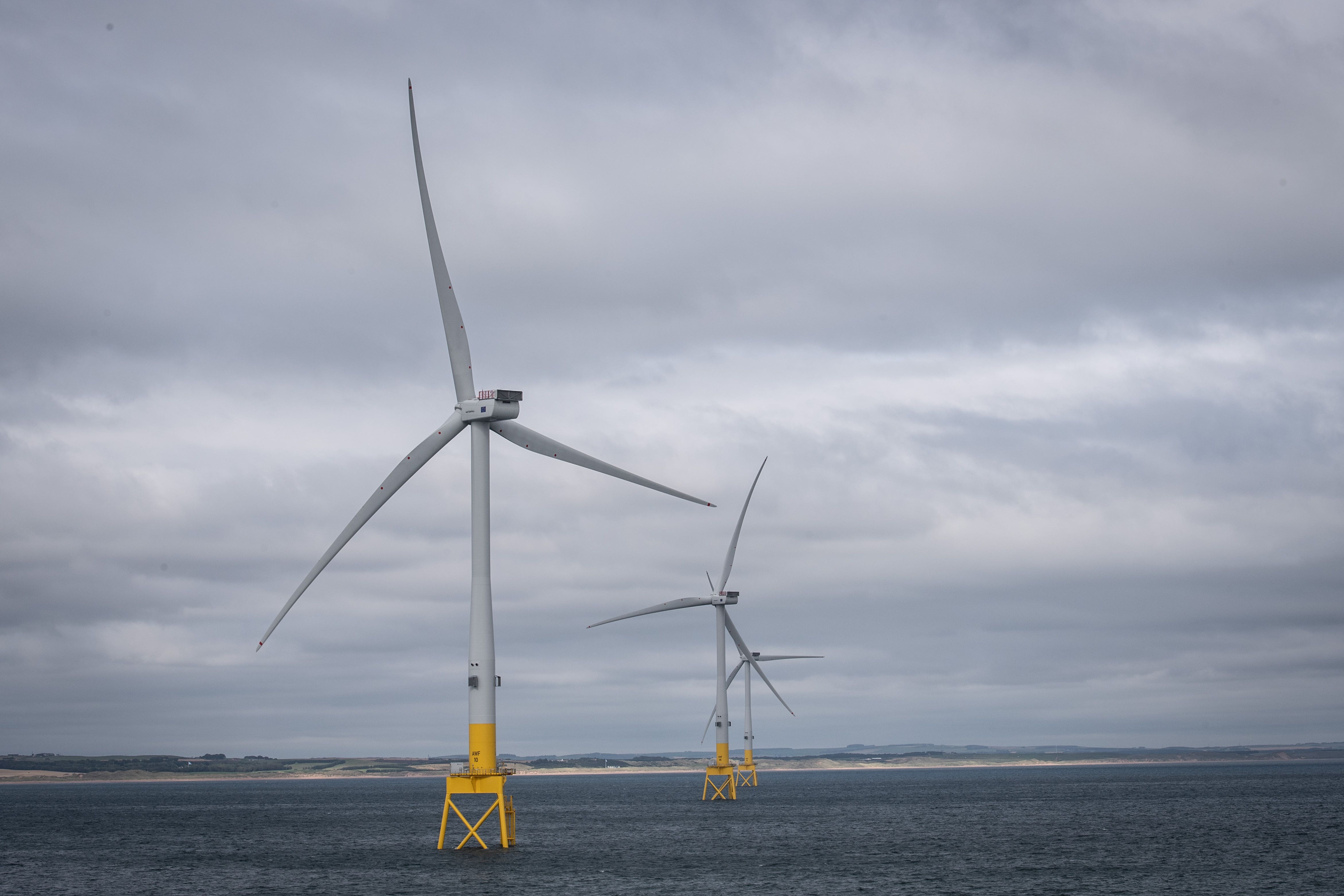Scotland should have equity stake in new ScotWind round, says Yousaf
The candidates laid out their energy policy during a hustings event in Fife.

Your support helps us to tell the story
From reproductive rights to climate change to Big Tech, The Independent is on the ground when the story is developing. Whether it's investigating the financials of Elon Musk's pro-Trump PAC or producing our latest documentary, 'The A Word', which shines a light on the American women fighting for reproductive rights, we know how important it is to parse out the facts from the messaging.
At such a critical moment in US history, we need reporters on the ground. Your donation allows us to keep sending journalists to speak to both sides of the story.
The Independent is trusted by Americans across the entire political spectrum. And unlike many other quality news outlets, we choose not to lock Americans out of our reporting and analysis with paywalls. We believe quality journalism should be available to everyone, paid for by those who can afford it.
Your support makes all the difference.Scotland should have an equity stake in the next ScotWind leasing round, SNP leadership contender Humza Yousaf has said.
The Scottish Government leased portions of the seabed to energy companies for the installation of floating wind farms, netting £700 million in fees for the projects.
But SNP hopeful Mr Yousaf has said any future round of the initiative should also come with an equity stake for the Scottish Government, meaning they could profit from the generation of energy.
I will instruct for the next round and equity stake in our renewables
Speaking at a hustings in Fife, Mr Yousaf said: “If I’m leader, for a future ScotWind round, I don’t think we should just lease, I think we should take an equity stake, so that if companies are benefiting, then that profit, that benefit is coming to us.
“I will instruct for the next round and equity stake in our renewables.”
The Health Secretary’s campaign confirmed a stake of 10% in each project would be insisted upon, but total revenue would be dependent on the output of future projects.
He has also said he would encourage Scottish Water to explore the generation of hydrogen.
Mr Yousaf went on to say he would favour a publicly owned renewable energy company that would build its own projects, but did not elaborate further.
He added: “That’s something that I think again would help to make sure that the benefit of that amazing potential we’ve got on renewables is not kept in the hands of profitable companies, but shared with the people.”
In a hustings where energy featured heavily, fellow leadership candidate Kate Forbes suggested Scotland should set up its own Norwegian-style sovereign wealth fund formed from the proceeds from renewable energy.
Ms Forbes said Scotland was “one of the few countries that found oil and got poorer”, adding: “Scotland’s potential when it comes to renewables is enormous, we have got such a significant percentage of the world’s access to all forms of renewables.”
She stressed the importance of money raised from energy generation was put back into Scotland.
“We already heard talk about Norway’s sovereign wealth fund, it’s too late for us to have a sovereign wealth fund when it comes to oil, but it’s not too late when it comes to renewables,” she said.
“We need to ensure that revenue is being generated and re-invested in our National Health Service and in our public services.”
While former community safety minister Ash Regan pointed to the Scottish National Investment Bank’s importance in the green energy sector in providing patient seed funding for projects in Scotland, adding: “We can’t miss the boat on this.
“We’ve got a big opportunity here. If we can take this sort of technology forward, we can build it in Scotland, we can put it into production in Scotland, we can generate green, clean energy in Scotland, put it into a national energy company so we can provide that green, clean energy for our citizens and that will also create skilled jobs in building the technology to sell it elsewhere.”